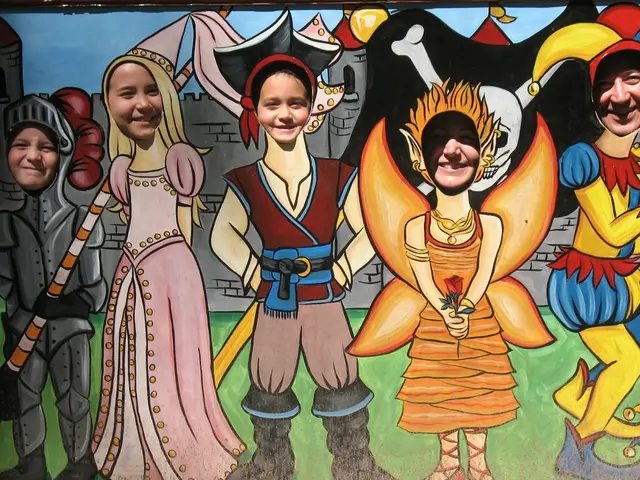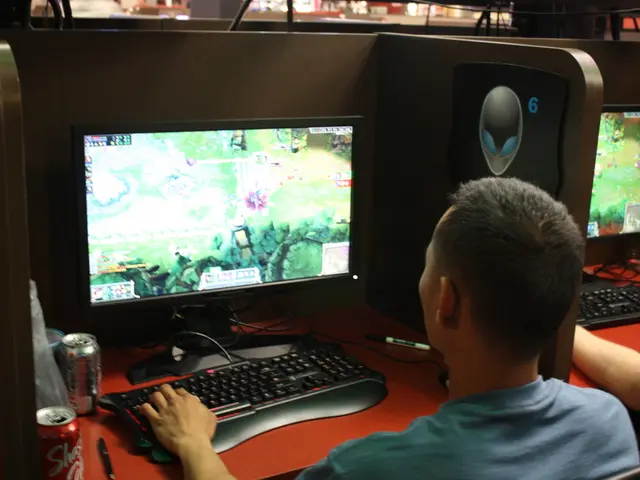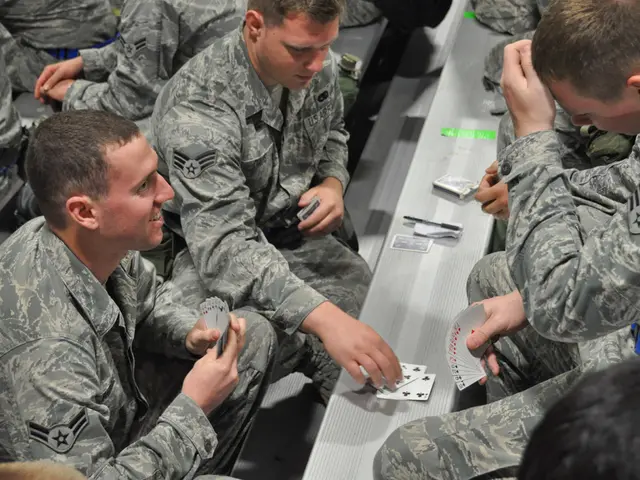Disputes over flags in England: Why are the Union Jack and St George's Cross being displayed frequently around the UK?
In the heart of England, a campaign that began in Birmingham has sparked a nationwide debate about national identity and the symbolism of flags. Known as "Operation Raise the Colours," the movement encourages people to display the Union Jack and St George's Cross across the country.
The organisers behind this campaign remain anonymous, coordinating actions through social media. They have managed to gather a significant following, inspiring people to raise British and English national flags in various public places. However, their exact identity remains unclear.
A recent survey by More in Common reveals that 60% of Britons want to see more flags in public spaces. Yet, the campaign has not been met without controversy. According to the same survey, 42% of Britons view the campaign as a political statement against immigrants.
The sudden visibility of these flags has reignited tensions, with incidents such as three women in North Yorkshire being filmed tearing down and stamping on a St George's Cross fixed to a lamppost.
Prime Minister Keir Starmer has expressed support for people who have pride in the flag and history, but acknowledges that flags can be used to "cause conflict." Sunder Katwala, director of British Future, argues that normalising the use of England flags is important.
However, the campaign has unfolded alongside anti-immigration demonstrations, with chants of "send them home" heard at rallies. Hope not Hate, an advocacy group, has warned that several organisers have links to far-right figures, including Tommy Robinson.
Nigel Nelson, a commentator on GB News, argues that flag displays are "provocative and divisive." Robert Jenrick, on the other hand, has branded local authorities that take flags down as "Britain-hating councils." Nigel Farage has pledged that Reform UK-led councils will not remove "sensibly"-placed flags.
Pro-refugee activists argue that the flags have become "political symbols" and "emotional triggers" for minorities. The debate highlights England's ambivalent relationship with its flags, a symbol that carries both pride and controversy.
The campaign has seen flags draped from flyovers on motorways, tied to lampposts, and painted on mini-roundabouts. The group has even raised over £20,000 through GoFundMe to purchase flags, poles, and cable ties.
The campaign was initiated by a Facebook group called the Weoley Warriors, a group of proud English men. The group's actions have sparked a nationwide conversation about national identity, the role of flags in public spaces, and the complexities of national pride in modern England.
Read also:
- Fitbit Versa 4 Experiences Continuous Price Drops on Amazon
- Asthma Diagnosis: Exploring FeNO Tests and Related Treatments
- Impact, Prevention, and Aid for Psoriatic Arthritis During Flu Season
- Government Official Shelar Urges Innovators as Lions Clubs Emphasize Annual Investment of Rs. 500 Crore in Local Communities








